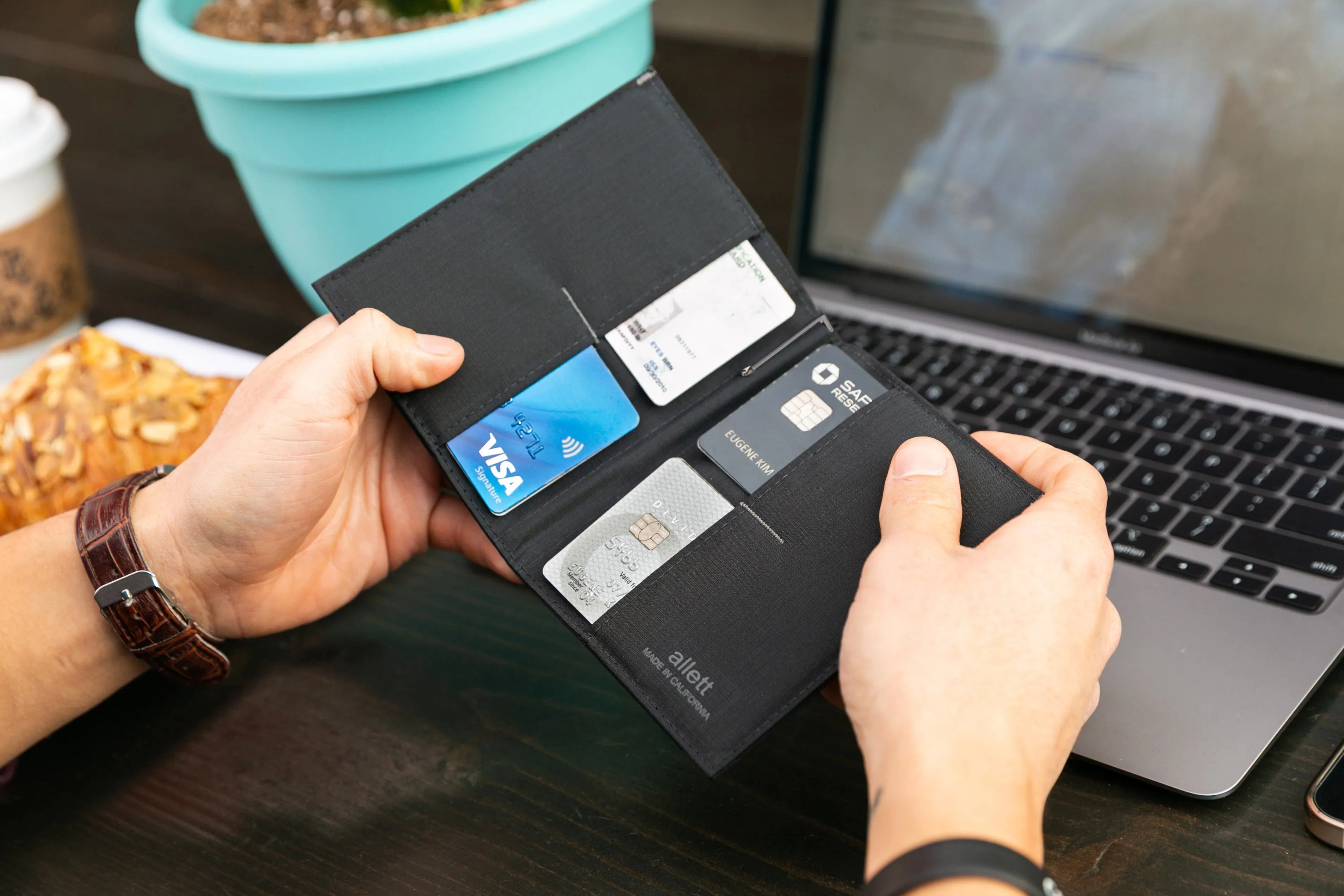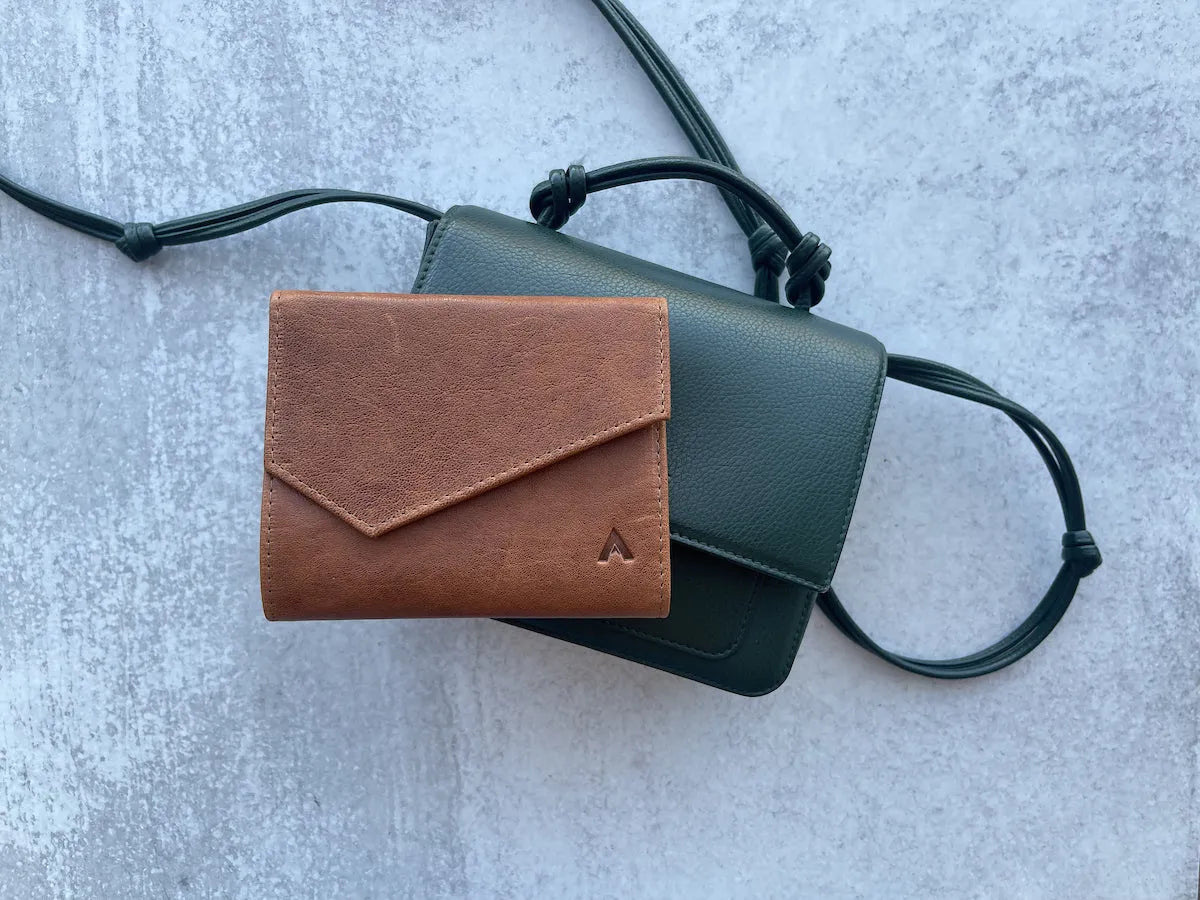
Wallet Organization for Digital Nomads: Staying Financially Savvy on the Move
One of the few positive changes of the last few years is the switch that many organizations have made to remote work. Many of us are now, more so than ever before, able to work from anywhere in the world we want to work, as long as we have access to a computer and the internet.
This change has allowed many people to completely change their life. Some are now able to work from home and spend more time with their kids and families. Some are now enjoying the social aspect of working away from the home, taking their computers to coffee shops and shared workspaces, free of managers looking over their shoulder.
Others are becoming what are known as “digital nomads.” These are individuals working from essentially anywhere in the world, able to do their work from hotels, summer homes, friend’s houses, or even their RVs, and then – when they’re not working – live somewhere that they can truly enjoy and experience things they’ve never experienced before.
Becoming a digital nomad is a potential privilege that only a few years ago never seemed possible. But now it is a reality for millions of people. Still, even those that are already used to the digital nomadic lifestyle, there are still many things that those on the move are trying to learn. That includes how you manage and organize your wallet.

Wallets for Digital Nomads – What to Choose
Let’s start with a caveat – one of the things that makes being a digital nomad so unique is that you can live anywhere, and living anywhere also means that your location partially determines what you need to carry with you. Someone spending a month in California is going to have very different needs than someone spending a month in London, which has very different needs than someone spending a month in Cambodia. These are all very different countries, with very different expectations and requirements.
That said, let’s first talk about what wallet(s) you may need, followed by how to organize them in ways that are safe and comfortable for you:
- Passports and On the Go Wallet – First, if you’re traveling internationally, you may want to consider two wallets. One, a passport wallet, to hold your passport as you navigate different countries. The other, a thin card wallet, to carry only the essentials with you when you’re hiking, visiting beaches, or out and about. Why both? Because even the thinnest and smallest passport wallet is fairly large, and it’s better to also have a wallet that is small and breathable for your time outdoors or within-city traveling.
- Minimal Cards – At home, when you’re out shopping a lot in various stores, you may need more cards on you to take advantage of discounts and store points. But on the go, you need 2, maybe 3 cards at most, and you want to carry as few as possible to protect yourself from theft, misplacement (calling people to cancel cards is more difficult when you’re not home), and bulk.
You may also want to consider whether you need space for a COVID-19 vaccination card, or an ID window. These are going to vary by state and country. When traveling mostly within your country, an ID wallet with a clear window is especially important, because you want to avoid situations where you have to take out your ID often and risk misplacing it. That is because replacing your ID when out of state can be extremely difficult.

How to Organize a Wallet as a Digital Nomad
Organizing a wallet as a digital nomad is not so different from organizing a wallet as a local. You’ll want your most common cards to be easily accessible near the top. You’ll want to limit how many cards you carry with you, to avoid risk. You will want to carry some cash. You can read our past articles on what to keep in your wallet and what not to keep in your wallet.
That said, there are some organizational tips specific to the lifestyle of digital nomads. These include:
- Second Wallet Usage – If you do have two wallets, you will want to avoid keeping both your ID and the passport in the same wallet. You will also want to keep a separate, second backup credit card for emergencies, in case you do lose your wallet. Keeping these separate ensures that you still have a form of ID and access to cash if you do have your wallet lost or stolen.
- Travel Credit Card – At least one, if not more than one, of your cards should be a travel credit card that doesn’t charge fees for foreign transactions. This will make sure that, no matter where you are, you do not have to concern yourself with unnecessary fees.
- Little (or Lots) of Cash – Traditionally, you will want to take some local cash, but not too much. Approximately $50 to $100 worth at most, possibly less, as long as you are in a city or country that traditionally accepts credit cards. This protects you from theft and keeps your wallet light. The exception is if you are traveling somewhere where credit cards are not as common, you will want to take between $100 and $300 in converted cash, as long as it is safe to do so.
- Critical Info – It is helpful, as a digital nomad, to have a small piece of paper in your wallet that has nay critical but not too personal information that is in English and translated into the language of the region. It should have a list of emergency contacts, health issues, how to contact you if someone finds your wallet, and any other information someone else may need. Just make sure you don’t give away any personal information, like social security numbers or your home address (unless necessary).
You may also need travel insurance, and a place to keep some of the information about hotels or bus paths (especially if your phone’s WiFi is spotty).
That should be all you carry with you. The less you have on you, the better. Even though many countries are safe, the one crime that is fairly common internationally is pickpocketing. Even the safest countries often have pickpocketing issues. In addition, the difficulty that a digital nomad will have canceling and replacing cards and info from abroad is significant. Limiting what you have on you, while still carrying everything you need, is essential.
Look through our passport wallets and our minimalist wallets, and find the accessories you need for your next adventure.




Leave a comment
This site is protected by hCaptcha and the hCaptcha Privacy Policy and Terms of Service apply.